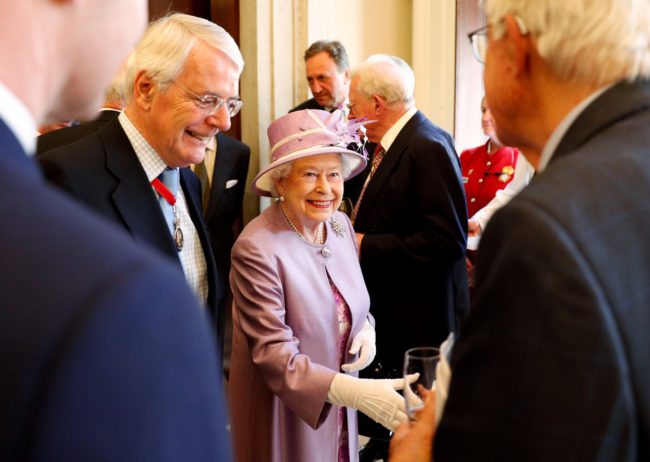Sir John Major: We should remember those who have fought for a more accepting Britain

In the 1950s and 1960s, much public opinion was anti-gay. No-one would have ever imagined that so many gay people would become the icons of today.
Today we are marking the 50th anniversary of the partial decriminalisation of homosexuality. It was the start of a long journey that would have been inconceivable in 1967. Many of those who argued for this progress in the 1950s and 1960s did not live to see the benefits of their convictions. But, today, we should remember the many efforts made by those both in and out of the public eye, for pressing for a more tolerant and accepting Britain.
Consider Alan Turing, without whom the enigma code might never have been broken; many more lives might have been lost; and the Second World War might not have been won. And yet – despite his extraordinary service to our nation – he was treated abominably. That would never happen today – and I rejoice in that.

LONDON, ENGLAND – JUNE 13: Queen Elizabeth II (CR) greets guests including former prime minister John Major (CL) at a reception after an Evensong service in celebration of the centenary of the Order of the Companions of Honour at Hampton Court Palace on June 13, 2017 in London, England. (Photo by Adrian Dennis – WPA Pool / Getty Images)
I was fortunate enough to be in a position to end the discrimination against gay members of the Civil Service. My only regret was that this liberation was so long delayed.
I recall a very senior Civil Servant suggesting to me that one very able candidate put forward to join my Private Office might – as he put it – “attract attention” because of his lifestyle. My only thought about that proposition was that it was wrong.
I would never have denied a politician a Ministerial job on the grounds that he or she would “attract attention”, and there was no logic (or fairness) in treating civil servants any less well.
In fashioning the public mood, we need to acknowledge successes as well as challenges.
Bigotry hasn’t gone: witness the shameful hostility that was whipped up during the Brexit campaign – raising irrational fears about the effect of immigration. But, overall, such sentiments are generally in retreat and out of time.
The rigid prejudice of the past caused many people, who harmed no-one, to live in fear and isolation. No-one should be forced to live their lives in this fashion due to their personal life choices.
We are what we are. We are what fate made us. And, whatever that may be, we are entitled to give and receive affection.
A life without affection is a life lacking an essential ingredient for happiness. I am proud that, overwhelmingly, most people today – and especially the young – have moved on from the social prejudices of earlier generations.
50 years on from that landmark ruling, I am happy to say that – to a greater extent than ever before – that is where we are now.

